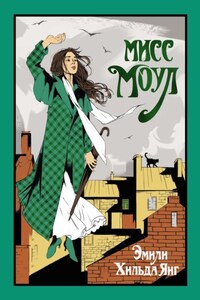The Vagrants of the Barren
With thick smoke in his throat and the roar of flame in his ears, Pete Noël awoke, shaking as if in the grip of a nightmare. He sat straight up in his bunk. Instantly he felt his face scorching. The whole cabin was ablaze. Leaping from his bunk, and dragging the blankets with him, he sprang to the door, tore it open, and rushed out into the snow.
But being a woodsman, and alert in every sense like the creatures of the wild themselves, his wits were awake almost before his body was, and his instincts were even quicker than his wits. The desolation and the savage cold of the wilderness had admonished him even in that terrifying moment. As he leaped out in desperate flight, he had snatched with him not only the blankets, but his rifle and cartridge-belt from where they stood by the head of the bunk, and also his larrigans and great blanket coat from where they lay by its foot. He had been sleeping, according to custom, almost fully clothed.
Outside in the snow he stood, blinking through scorched and smarting lids at the destruction of his shack. For a second or two he stared down at the things he clutched in his arms, and wondered how he had come to think of them in time. Then, realizing with a pang that he needed something more than clothes and a rifle, he flung them down on the snow and made a dash for the cabin, in the hope of rescuing a hunk of bacon or a loaf of his substantial woodsman’s bread. But before he could reach the door a licking flame shot out and hurled him back, half blinded. Grabbing up a double handful of snow, he buried his face in it to ease the smart. Then he shook himself, coolly carried the treasures he had saved back to a safe distance from the flames, and sat down on the blankets to put on his larrigans.
His feet, clothed only in a single pair of thick socks, were almost frozen, while the rest of his body was roasting in the fierce heat of the conflagration. It wanted about two hours of dawn. There was not a breath of air stirring, and the flames shot straight up, murky red and clear yellow intertwisting, with here and there a sudden leaping tongue of violet white. Outside the radius of the heat the tall woods snapped sharply in the intense cold. It was so cold, indeed, that as the man stood watching the ruin of his little, lonely home, shielding his face from the blaze now with one hand then with the other, his back seemed turning to ice.
The man who lives alone in the great solitude of the forest has every chance to become a philosopher. Pete Noël was a philosopher. Instead of dwelling upon the misfortunes which had smitten him, he chose to consider his good luck in having got out of the shack alive. Putting on his coat, he noted with satisfaction that its spacious pockets contained matches, tobacco, his pipe, his heavy clasp-knife, and his mittens. He was a hundred miles from the nearest settlement, fifty or sixty from the nearest lumber-camp. He had no food. The snow was four feet deep, and soft. And his trusty snowshoes, which would have made these distances and these difficulties of small account to him, were helping feed the blaze. Nevertheless, he thought, things might have been much worse. What if he had escaped in his bare feet? This thought reminded him of how cold his feet were at this moment. Well, the old shack had been a good one, and sheltered him well enough. Now that it would shelter him no longer, it should at least be made to contribute something more to his comfort. Piling his blankets carefully under the shelter of a broad stump, he sat down upon them. Then he filled and lighted his pipe, leaned back luxuriously, and stretched out his feet to the blaze. It would be time enough for him to “get a move on” when the shack was quite burned down. The shack was home as long as it lasted.
When the first mystic greyness, hard like steel and transparent like glass, began to reveal strange vistas among the ancient trees, the fire died down. The shack was a heap of ashes and pulsating, scarlet embers, with here and there a flickering, half-burned timber, and the red-hot wreck of the tiny stove sticking up in the ruins. As soon as the ruins were cool enough to approach, Pete picked up a green pole, and began poking earnestly among them. He had all sorts of vague hopes. He particularly wanted his axe, a tin kettle, and something to eat. The axe was nowhere to be found, at least in such a search as could then be made. The tins, obviously, had all gone to pieces or melted. But he did, at least, scratch out a black, charred lump about the size of his fist, which gave forth an appetizing smell. When the burnt outside had been carefully scraped off, it proved to be the remnant of a side of bacon. Pete fell to his breakfast with about as much ceremony as might have sufficed a hungry wolf, the deprivation of a roof-tree having already taken him back appreciably nearer to the elemental brute. Having devoured his burnt bacon, and quenched his thirst by squeezing some half-melted snow into a cup of birch-bark, he rolled his blankets into a handy pack, squared his shoulders, and took the trail for Conroy’s Camp, fifty miles southwestward.














